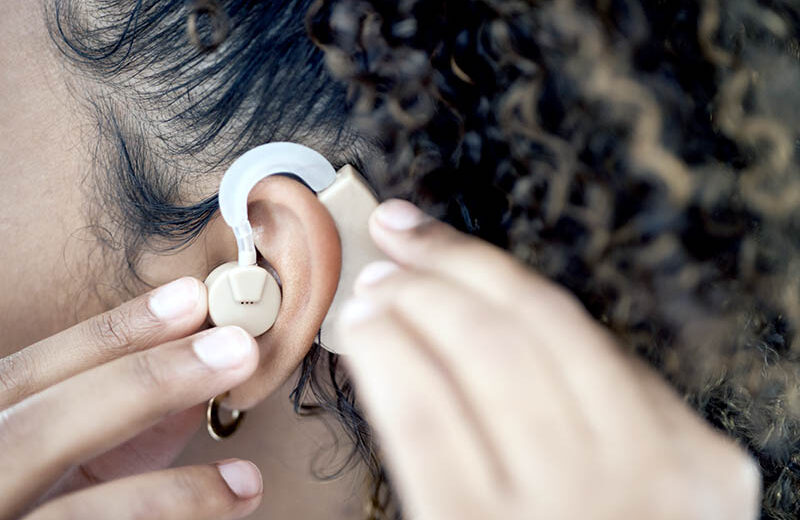It is common to experience a decline in hearing ability with advancing age. Specifically, between the ages of 65 and 74, 1 in 3 Americans encounter age-related hearing loss. Factors such as age-related changes in the inner ear, exposure to excessive noise, certain medications, and underlying health conditions like diabetes and hypertension can significantly contribute to hearing impairment. Despite the widespread nature of hearing loss, merely 1 in 5 individuals in need of a hearing aid opt to use one. An audiologist offers valuable insights into the considerations that individuals should contemplate when selecting a suitable hearing aid.
Selecting a Hearing Aid: What to Know About Choosing a Device
Key Differences to Consider
Hearing aids do not fully restore normal hearing; nevertheless, they amplify sound and diminish ambient noise, facilitating improved interaction with the external environment. This includes enhanced auditory perception during conversations, active engagement in group activities, improved television viewing experience, and heightened sound awareness for safety considerations.
Daily-wear hearing aids are designed for user-friendly insertion and removal. Typically, wearers insert the hearing aid at the day’s commencement and disengage it before retiring for the night. These aids are suitable for most activities and possess water-resistant properties, yet removing them during showering or swimming is recommended. Various styles are available, encompassing behind-the-ear and in-the-ear models.
Extended-wear hearing aids are discreet devices inserted into the ear canal by a qualified audiologist. Positioned near the eardrum, these devices can function for an extended time without requiring battery replacement, typically lasting between one and three months. While they should be removed for swimming, they are suitable for showering.
Understanding Your Hearing Challenges
Take time to contemplate your most arduous auditory environments, whether in solitude, amidst family and friends, or within a professional milieu, and communicate this information to your audiologist. Collaborating with a team that evaluates your audiogram and comprehensively assesses your hearing impairment, encompassing an understanding of your listening challenges, auditory aspirations, and lifestyle, is imperative.
Hearing Aids Are Customized For Each User
Selecting a hearing aid is not uniform and cannot be based on a one-size-fits-all approach. It is imperative to recognize that a device that proves effective for one individual may not be suitable for another. Furthermore, the decision to opt for a hearing aid solely based on its cost or portrayal as a cutting-edge technology fails to ensure its appropriateness in addressing one’s specific auditory requirements and objectives. Various factors, including the dimensions and contours of your ear canal, financial resources, and insurance provisions, can impact the choice of the appropriate hearing aid for your needs. The optimal hearing aid is the one chosen in collaboration with an audiologist.
When choosing a hearing aid, remember the following:
Hearing aids come with a 45-business-day trial period. Use this time to evaluate the device’s convenience and your ability to use it. Meet with your audiologist two to three times during the trial period for adjustments and to address any questions. After six months, follow up with your audiologist to assess your listening abilities and quality of life improvement. This assessment provides an opportunity to improve the function of your hearing aid.
Having Support at Your Hearing Appointment
When attending an appointment with your audiologist to investigate the diverse types of hearing aids available, it is advisable to be accompanied by a trusted family member or friend. This support person can serve as an additional set of listening ears, assisting you in retaining the information provided during the consultation. Furthermore, we strongly advise patients to communicate any queries or apprehensions about their hearing aids with their audiologist.





